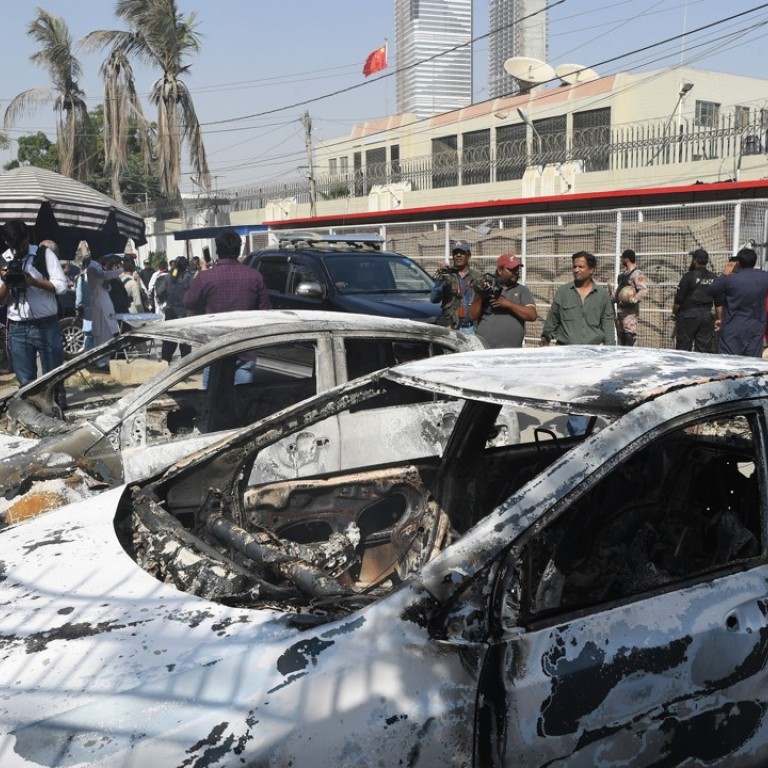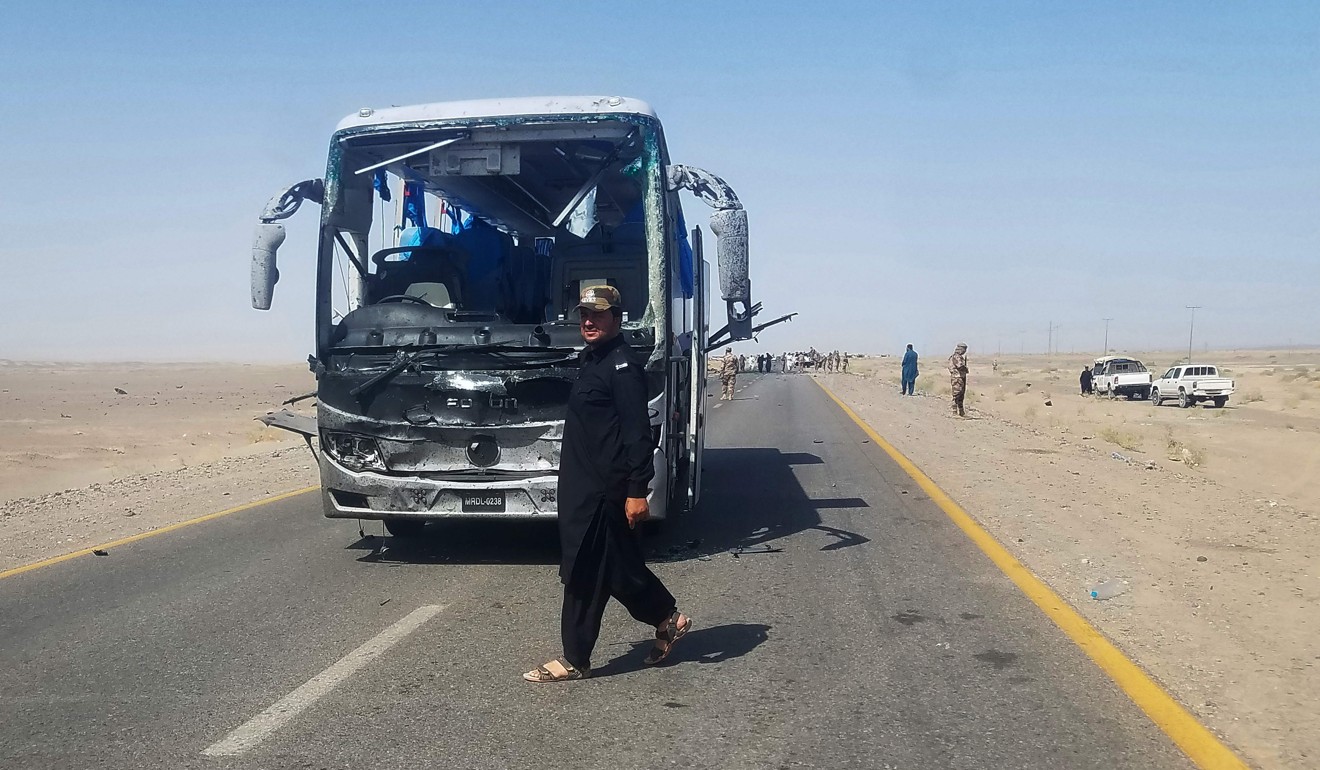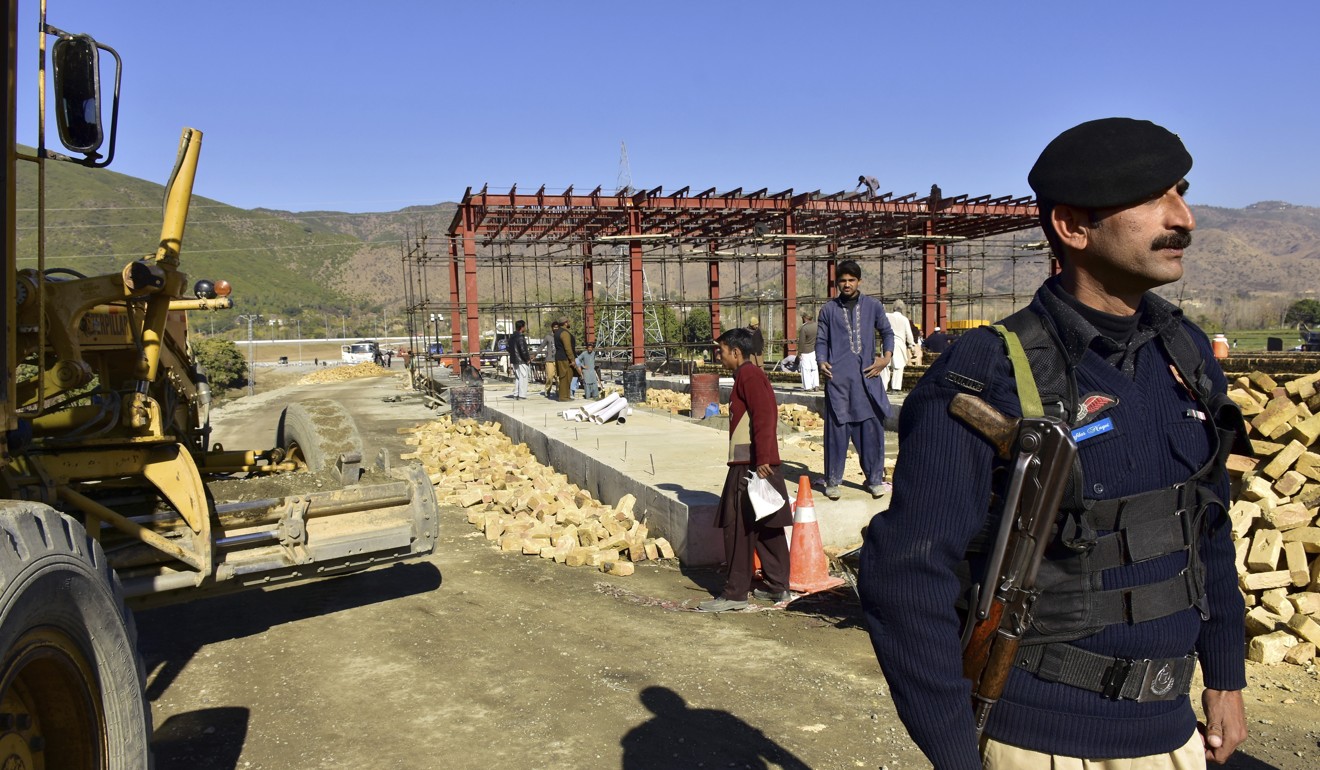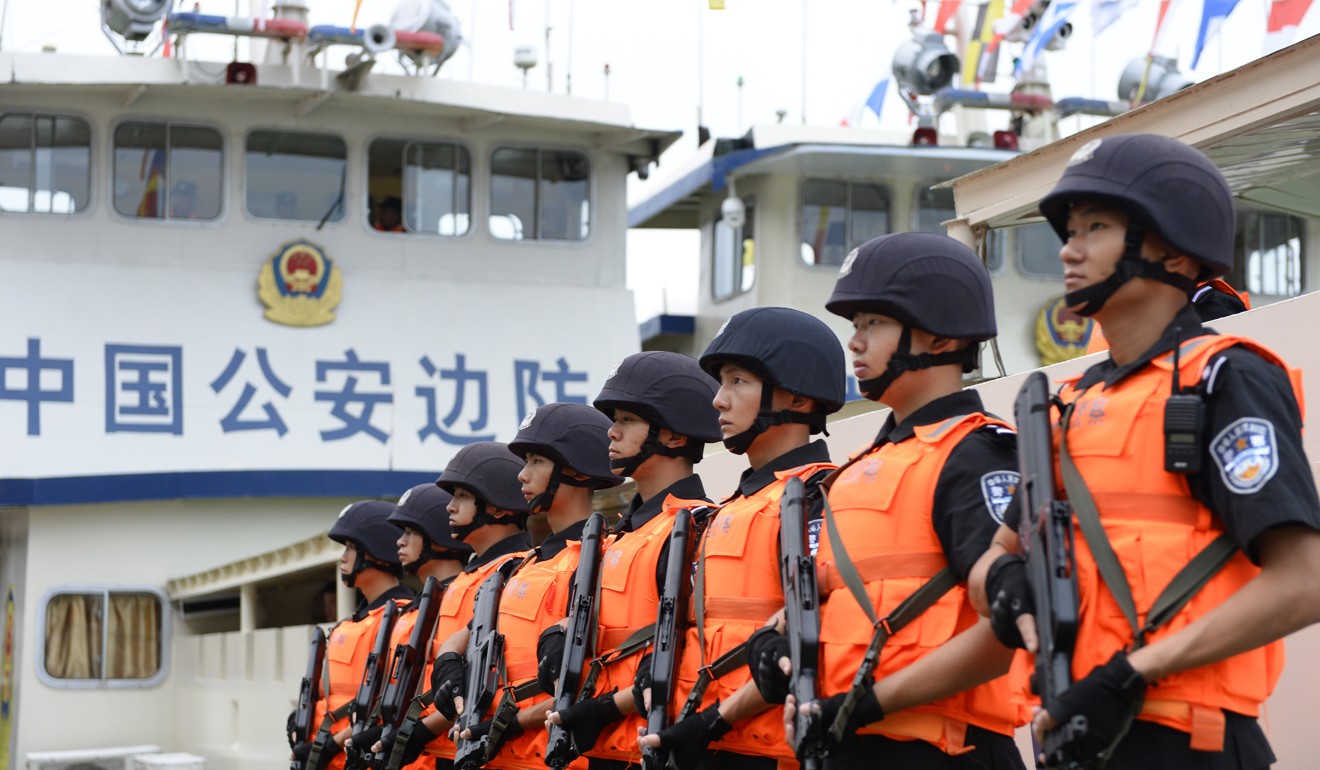
Pakistan attacks expose China’s Achilles’ heel on international stage
- While there is a growing Chinese presence around the world, security experts warn that its citizens and businesses need better protection from a range of threats
A series of attacks against Chinese people and institutions overseas have exposed a weak link in the country’s efforts to expand its presence overseas
Industry insiders and analysts, speaking in the wake of last month’s attack on the Chinese consulate in Karachi, said the country needed to be more aware of the risks from terrorism and improve security for its citizens and businesses.
The Karachi attack, in which two civilians and two police officers died along with the three attackers, was carried out by the Balochistan Liberation Army, which has accused Beijing of destroying the future of the province.
Balochistan is at the heart of the US$63 billion China-Pakistan Economic Corridor and is home to the port of Gwadar, where Beijing is said to be developing its second overseas military base.
The attack was the second targeting Chinese nationals in Balochistan in just four months. In August, six people, three of them Chinese nationals, were injured when a bus carrying Chinese engineers was attacked in the area.

Industry insiders and analysts said Chinese people overseas now face a higher risk of attack as the country expands its influence overseas.
Some 30,000 Chinese-headquartered firms have overseas operations and over 100 million Chinese citizens travel abroad annually, according to the foreign ministry.
Last year, China’s outward direct investment stood at US$158.29 billion, according to the commerce ministry, and the country is working on a number of international infrastructure projects under its Belt and Road Initiative.
Roy Yang, vice general manager from Beijing-based China Overseas Security Group, has been providing protection to Chinese nationals in Pakistan for more than three years.
He said China was not well equipped to handle the security threat associated with its overseas initiatives.
“Some of the Chinese workers here are not aware of the security risks here,” Yang said.
“China has to build up a security network which involves both private and government efforts, and Chinese people need to learn more about security problems in foreign countries”.
Attacks on Chinese nationals and interests in Pakistan are likely to continue. Here’s why
The Chinese foreign ministry said that diplomats had to deal with more 86,000 cases last year in which citizens needed help from consular staff, an increase of 45 per cent compared with the previous year.
But in total it has just 6,500 diplomatic staff stationed overseas, which works out as one for every 190,000 citizens. By contrast the US has around one consular official for every 6,000 citizens, according to a study by Peking University academic Wang Yizhou.
“The number of foreign ministry staff for consular protection is definitely not enough,” Yang said.
A report by US think tank Rand released in March highlighted China’s reliance on other countries to provide security for its citizens and businesses.
The Pakistani government has promised to deploy 10,000 soldiers to protect a port development that forms part of the China-Pakistan Economic Corridor.

It also relies heavily on private firms to supply security guards.
The Chinese government passed legislation authorising and regulating the establishment of commercial security firms in 2010, and there are now around 3,000 private security personnel working abroad.
But the report said China’s security measures are lagging behind its massive overseas investment, and it has to be more alert to the level of risk in some of the countries in which it is expanding its presence.
“China’s current measures are inadequate. China relies heavily on security contractors, but these are unarmed. To protect its overseas interests effectively, China should seek a stronger PLA capable of diverse missions and tasks overseas,” said Timothy Heath, senior international defence research analyst at US think tank Rand.
“China can also expand joint security partnerships so that the People’s Liberation Army and People’s Armed Police forces can tackle threats with the cooperation and support of host nation governments”.
Beijing has oversold benefits of US$62 billion China-Pakistan Economic Corridor, expert says
One example of the risks faced came in February 2011 when the Chinese government had to charter planes and ships to evacuate thousands of workers from Libya after staff from the China National Petroleum Corporation and other businesses were attacked during the fighting that swept the country during the downfall of Muammar Gaddafi.
However, China is beginning to expand its capabilities, changing the law to authorise the military to send personnel abroad on counterterrorism missions and opening its first foreign base in Djibouti.
The navy also took part in anti-piracy operations in the Gulf of Aden, deploying more than 16,000 sailors between December 2008 and early 2015.
It is also stepping up its cooperation with other countries in the fight against terrorism.
China is now helping Afghanistan to set up a mountain brigade in the country’s north to boost counterterrorism efforts.
It has also given Nigeria armed drones and intelligence to help fight Boko Haram and offered US$60 million to help build up the African Union’s standby force.

Ling Shengli, an international relations expert from China Foreign Affairs University, said China could also dispatch police officers abroad to work with their foreign counterparts, highlighting the example of joint patrols that are conducted along the Mekong.
But Heath warned that Western countries might become concerned if China steps up its efforts to shape international law enforcement or cooperate more closely with other forces.
“There is a risk that tensions could increase in certain areas, especially if Chinese-backed militaries attack or threaten the interests of the US and its allies,” said Heath.

